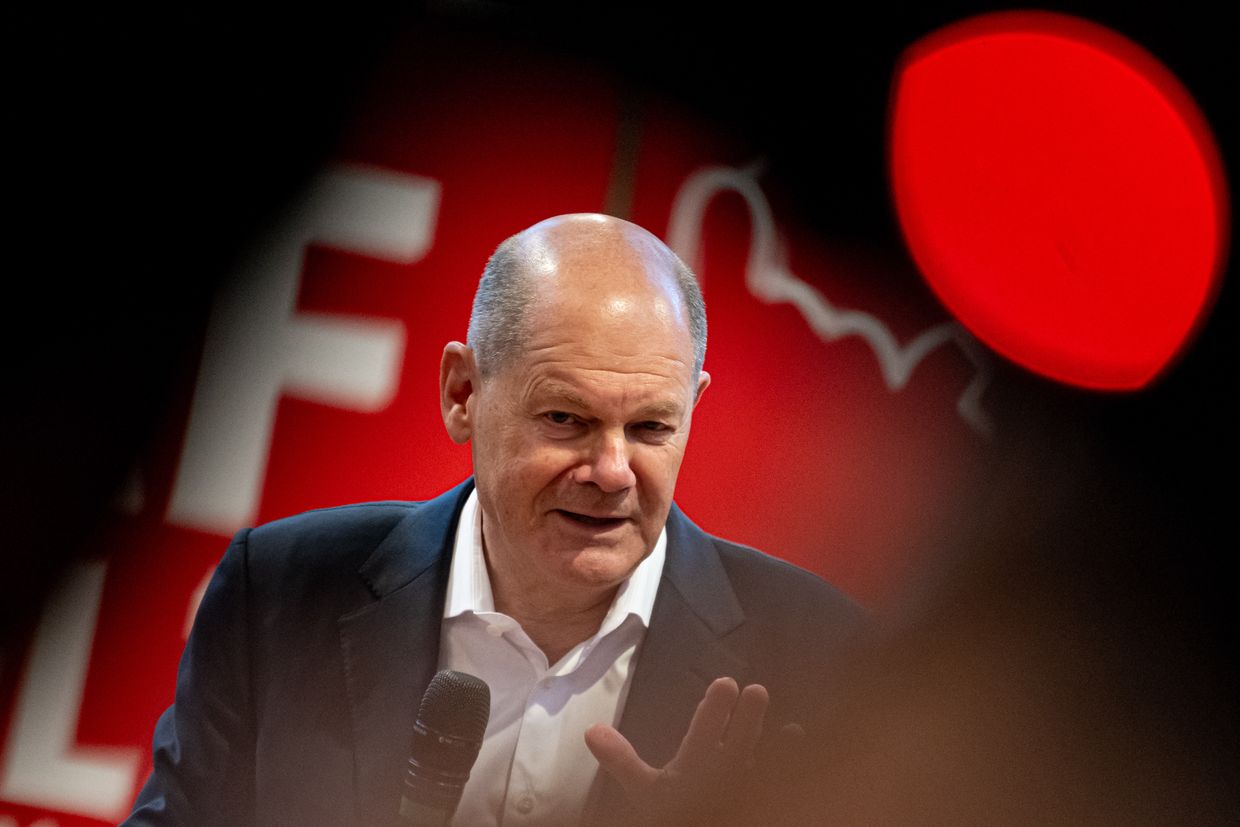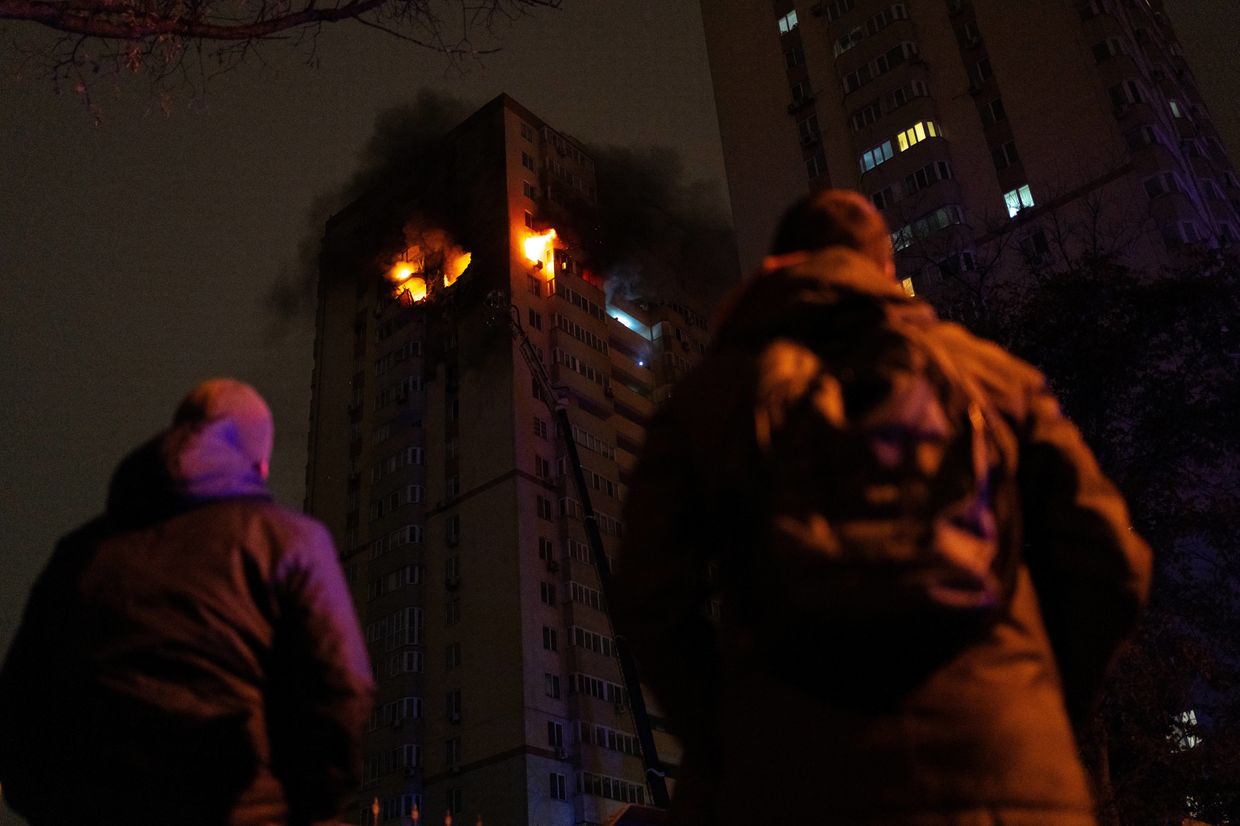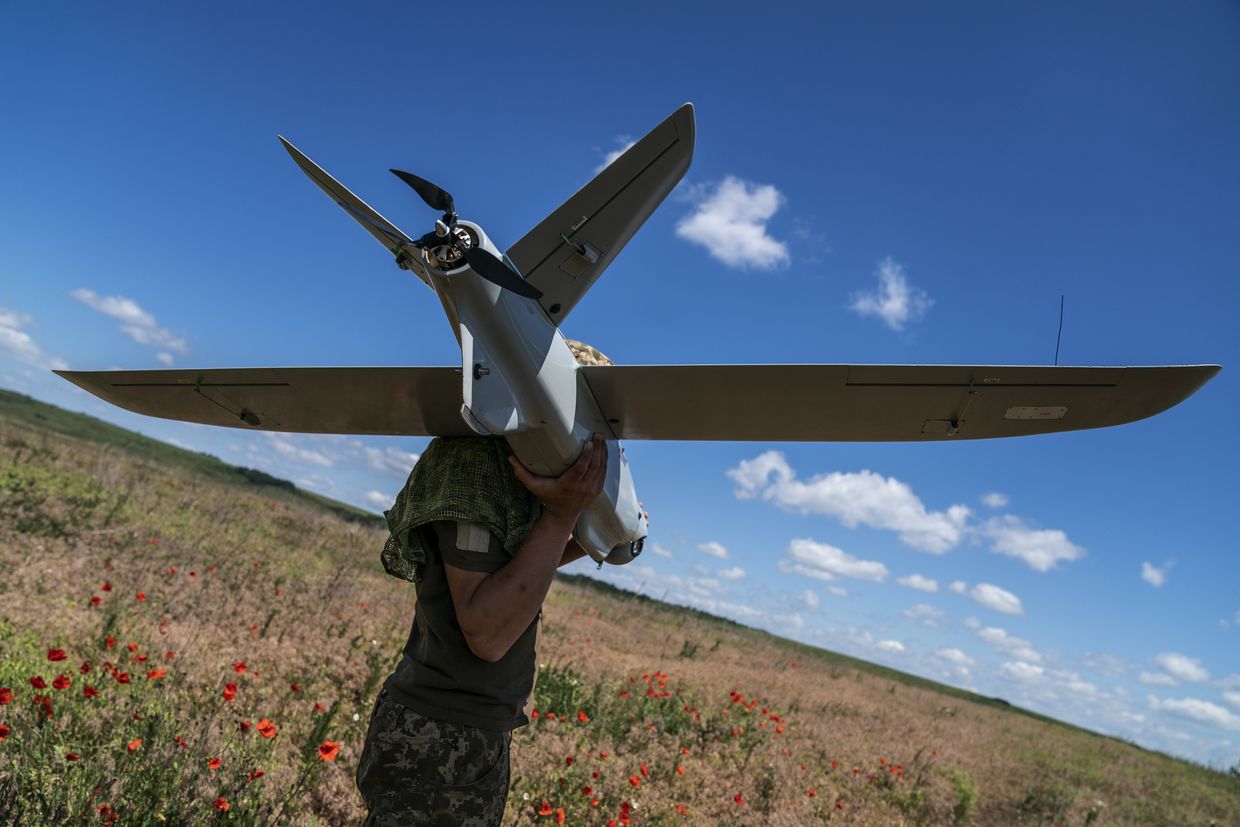Ukraine war latest: Russia hits residential area in Odesa, kills 10, injures 55

Key developments on Nov. 18:
- Russian missile attack on Odesa hits residential area, kills 10, injures 55
- US aims to 'provoke further escalation' — Kremlin comments on long-range strikes
- Scholz's stance on Taurus unchanged despite US permission on long-range strikes
- Turkish president to propose freezing Ukraine front line, Bloomberg reports
- Zelensky visits key front-line town of Pokrovsk
- Russia uses cheap decoy drones to overload Ukraine's air defense, Ukrainian intelligence says
Russian forces launched a ballistic missile attack against the port city of Odesa on Nov. 18, killing at least 10 people and injuring 55.
The killed included seven police officers, a medic, and two civilian residents. Among the injured were at least 14 law enforcement officers and four children, two of them aged 7, 10, and two 11-year-olds.
The children are hospitalized and are in condition of moderate severity, Governor Oleh Kiper said. Thirty other people are hospitalized, of which three are in critical condition.
Local authorities declared Nov. 19 a day of mourning in Odesa, Kiper said.
"After calls and meetings with (Russian President Vladimir) Putin, after false media gossip about 'refraining' from strikes, Russia shows what it is really interested in: only war," Zelensky said.
The attack occurred shortly after Russia launched one of its largest mass strikes against Ukraine on Nov. 17 and deadly missile attacks against the city of Sumy overnight on Nov. 18.
Odesa, lying on the Black Sea coast in southern Ukraine, is home to some 1 million residents. The port city has been repeatedly targeted throughout the full-scale war.
US aims to 'provoke further escalation' — Kremlin comments on long-range strikes
The outgoing U.S. administration intends to provoke an escalation of the war in Ukraine, Kremlin spokesperson Dmitry Peskov told the media on Nov. 18 following reports that Washington eased restrictions on long-range strikes.
Peskov's words come as a Russian missile attack on Odesa hit a residential area, killing 10, and injuring 55 more.
Several media outlets reported on Nov. 17 that U.S. President Joe Biden permitted Ukraine to use its ATACMS missiles to strike against targets on Russian soil. According to some reports, this so far concerns only Russian and North Korean forces amassing in Russia's Kursk Oblast.
"You know, with the reports in Western media, it is obvious that the outgoing administration in Washington intends to take steps... to add fuel to the fire and continue to provoke further escalation of tensions," Peskov said in response to a question whether the Kremlin can confirm that Washington took the step, RIA Novosti reported.
The statement comes as Biden is set to leave office in January, with Donald Trump replacing him in the Oval Office. The Biden administration has pledged to deliver as much support to Ukraine as possible before Trump takes office.

Scholz's stance on Taurus unchanged despite US permission on long-range strikes
German Chancellor Olaf Scholz is not planning to supply Ukraine with Taurus missiles despite the U.S. easing restrictions on long-range strikes, a government spokesperson told the AFP news agency on Nov. 18.
Scholz has "made his position clear" on the matter and will "not change his stance anymore," spokesperson Wolfgang Buchner said.
Ukraine has previously received U.S.-made ATACMS and Storm Shadow/SCALP missiles from the U.K. and France, with a range of 300 kilometers (190 miles) and 250 kilometers (150 miles), respectively.
In contrast, Scholz has been adamant about not supplying the Taurus cruise missiles, which boast a range of 500 kilometers (310 miles), fearing an escalation with Russia.
Berlin's policy may soon shift as Germany heads toward snap elections on Feb. 23, with the center-right opposition alliance CDU/CSU currently leading the polls and threatening to oust Scholz.
CDU/CSU's chancellor candidate, Friedrich Merz, said he would allow the delivery of Taurus missiles, but only if necessary after issuing an ultimatum to Russian President Vladimir Putin and lifting restrictions on arms that had already been provided.
Similarly, Vice Chancellor and Economy Minister Robert Habeck, who is running for the chancellery for the Greens, said he would greenlight the delivery of the missiles if elected in February.
Turkish president to propose freezing Ukraine front line, Bloomberg reports
Turkish President Recep Tayyip Erdogan will propose his peace plan for Ukraine during the G20 talks commencing on Nov. 18, Bloomberg reported, citing undisclosed sources.
Erdogan's proposal would include Ukraine foregoing joining NATO for at least 10 years, freezing the current front line, providing Ukraine with weapons, and deploying international troops to a demilitarized buffer zone in the Donbas, Bloomberg reported.
The Turkish leader's proposal comes as NATO countries prepare for a Donald Trump presidency, which many fear will lead to the U.S. pressuring Ukraine to end the war quickly, even at the cost of territorial concessions.
The G20 countries are set to convene in Brazil without the participation of Russian President Vladimir Putin. Brazil is a party to the Rome Statute of the International Criminal Court (ICC), which issued an arrest warrant for Putin last year for the abduction of Ukrainian children.
Zelensky will also not be present, despite numerous appeals to receive an invitation. Zelensky said on Nov. 16 that Ukraine must do everything possible to end the war through diplomatic means in 2025.
Zelensky's words followed Scholz’s phone conversation with Putin, during which he condemned Russia's war against Ukraine and called to withdraw Russian troops from Ukrainian territory. He also urged Russia to negotiate with Ukraine to achieve a "just and lasting peace."
The call sparked anger in Ukraine, with Zelensky saying it could open a "Pandora's Box" for further engagement with the Russian leader. In the wake of Trump's election, Kyiv has urged its partners to adopt a "peace through strength" approach to pressure Russia toward a just peace.

Zelensky visits key front-line town of Pokrovsk
President Volodymyr Zelensky visited the town of Pokrovsk in Donetsk Oblast, currently lying some 6-7 kilometers from the front line, his Telegram channel reported on Nov. 18.
Pokrovsk, a key logistics hub for Ukrainian forces in the east, has come into artillery and drone range of Russian forces moving relentlessly forward in Donetsk Oblast. With Moscow's troops drawing near, losing the town would be a serious blow to other parts of Ukraine's defense as well.
"A tense sector. It is only thanks to the strength of the soldiers that the east (of Ukraine) is not completely occupied by Russia. The enemy receives a response every day," Zelensky said.
The head of state also visited the base of the 25th Airborne Brigade and handed out awards to soldiers.
During his trip, Zelensky was accompanied by Donetsk Oblast Governor Vadym Filashkin, who called Pokrovsk "one of the hottest spots" of the front line.
Zelensky has previously visited the most critical sectors of the front line during the full-scale war, including now Russian-occupied Bakhmut or Avdiivka.
His visit aims to boost the morale among Ukrainian troops, who are increasingly on the back foot in the face of a Russian advance. The inauguration of U.S. President-elect Donald Trump in January adds further uncertainty regarding the future of Ukrainian defense capabilities.
Russia uses cheap decoy drones to overload Ukraine's air defense, Ukrainian intelligence says
Russian forces use cheap decoy drones with foreign components to overload Ukraine's air defense system, Ukraine's military intelligence (HUR) reported on Nov. 18.
Russia has recently increased the number of large-scale drone attacks against Ukrainian cities, depleting Ukraine's air defense systems and targeting critical infrastructure.
According to HUR, Russian manufacturers use components from the U.S., China, the Netherlands, and Switzerland to produce the Gerbera drone, a cheaper and less deadly equivalent of Iran's Shahed, at a plant in Yelabuga, in the Republic of Tatarstan, central Russia.
The Gerbera drone can carry a combat payload similar to that of a kamikaze drone and conduct reconnaissance missions, particularly to detect air defense positions and record hits from other attack drones.
The Gerbera is ten times cheaper than the Shahed or Geran drones due to the use of simple materials, such as plywood and foam. Yet, the drone contains a set of components from foreign manufacturers that "are common for Russian weapons," according to HUR.
Examination of the downed drones showed that Russia manufactures Gerberas based on a Chinese prototype using foreign components imported from China.
The Gerbera drones were developed by the Chinese model aircraft manufacturer Skywalker Technology Co., Ltd., which also produces fuselages and organizes the supply of kits to Russia.
The Gerbera's jamming-resistant antenna (CRPA) contains chips from Analog Devices and Texas Instruments, both made in the U.S., and NXP Semiconductors, made in the Netherlands. The flight controller also uses components manufactured by Texas Instruments, Atmel (USA), STMicroelectronics, U-Blox (Switzerland), NXP Semiconductors (Netherlands), and XLSEMI (China).
The DLE60 engine is manufactured by the Chinese company Mile Hao Xiang Technology Co, Ltd. In the summer of 2024, the U.S. sanctioned this company for supplying Russia.
Supplies are made through third-party companies, according to HUR.
"At this point, the biggest advantage that Russia may have in such attacks is sheer numbers of drones," Samuel Bendett, a senior fellow at the Center for a New American Security think tank, told the Kyiv Independent.
Bendett mentioned the Alabuga Special Economic Zone in Russia's Republic of Tatarstan, where a Shahed-type drones plant is located. In May, the Wall Street Journal (WSJ) reported, citing a contract leaked by the Prana Network hacker group, that the factory already produces 4,500 Shaheds and aims to increase this number to 6,000.
"It appears that Russian efforts in Alabuga have ensured that the Russian military has thousands such UAVs at its disposal along with other simpler, smaller variance identified recently that fly alongside these official Geran (Russian name for Shahed-type) UAVs," Bendett said.
On Nov. 17, Russian forces launched one of the heaviest aerial strikes against the country throughout the full-scale war, primarily targeting the energy grid. Ukrainian air defenses shot down 102 of the 120 missiles and 42 of the 90 drones launched by Russia overnight.
















